Michael Koch ist ein Schweizer Regisseur, der mit seinem dritten Langfilm DRII WINTER im Wettbewerb der diesjährigen Berlinale um den Goldenen Bären konkurriert. Das Werk entstand im Zeitraum von März 2020 bis Dezember selbigen Jahres und konnte als eines der wenigen Projekte zu dieser Zeit weitestgehend problemlos fortgeführt werden. Da der Film nur mit einem sehr kleinen Ensemble arbeitet und zudem sehr abgeschottet in den Schweizer Bergen aufgenommen wurde, hielten sich die Infektionsgefahren auf einem absoluten Minimum. Für seine Hauptrollen setzt der fast Vierzigjährige auf Laiendarsteller.
Darum geht es…
Anna ist ein Kind der Schweizer Alpen und arbeitet in einem kleinen Dorf als Bardame und Kellnerin. Marco kommt zwar aus dem Flachland, arbeitet aber in den Bergen für und mit einem Bergbauern zusammen und hilft bei allen anfallenden Tätigkeiten. Anna und Marco verlieben sich ineinander, heiraten und ziehen zusammen das junge Mädchen Julia groß. Es wirkt alles perfekt, bis bei einer Untersuchung nach einem Motorradunfall festgestellt wird, dass der robuste und stets grimmig dreinblickende Marco über seine schweren Verletzungen hinaus auch noch einen recht großen Tumor im Kopf sitzen hat. Dieser Tumor wirkt sich massiv auf seine Persönlichkeit aus und verändert seine Impulssteuerung. So kommt es dazu, dass immer häufiger Situationen auftreten, in denen der eigentlich zahme und liebenswerte Mann handgreiflich wird und völlig neben sich steht. Für alle Beteiligten ist es eine große Herausforderung, mit dieser Situation umzugehen – doch wird die Familie dies aushalten?
Rezension
Schweizer Filme sind in den deutschen Kinos eher rar gesät, was einerseits daran liegt, dass die Schweiz bei weitem nicht so einen großen Output in der Filmproduktion hat, wie es Deutschland vorweisen kann und andererseits es sich häufiger mal um Heimatproduktionen handeln, die eher für den heimischen TV-Bildschirm gut sind. DRII WINTER hingegen hat zurecht seinen Platz bei der Berlinale bekommen, denn hierbei handelt es sich um einen Film mit einem wirklich wuchtigen Thema im Schweizer Tempo. Regisseur Michael Koch hat bereits in seinem letzten Langfilm MARIJA sich intensiv mit moralischen Fragen auseinandergesetzt und greift dieses auch hier wieder auf. Im Fokus steht dabei die Überlegung, wie wir mit Menschen umgehen können und müssen, die mit ihren Aggressionen nicht klarkommen, diese jedoch selbst auch nicht beeinflussen können. Koch entwickelt hierfür ein interessantes Szenario, welches es dem Publikum möglich macht, selbst in diesen Konflikt einzusteigen und zum selbstständigen Hinterfragen anregt.
Die beiden Laiendarstellenden Michèle Brand und Simon Wisler tragen bravourös dazu bei, diese Message zu transportieren, denn beide agieren ihrer Rolle entsprechend äußerst professionell. Bei Marcos Schauspiel überwiegt jedoch die Skepsis hinsichtlich seiner Qualitäten, denn in nahezu jeder Szene sehen wir mit exakt gleichem Gesichtsausdruck. So sehen wir sehr früh im Film eine Szene, in der Anna mittels eines erotischen Tanzes Marco verführen will. Wir bekommen nur die Andeutung des Tanzes zu sehen, und direkt danach wird auf den regungslos dasitzenden Marco geschnitten und lange Zeit die Perspektive nicht mehr gewechselt. Mehrere Minuten verweilt das Bild auf ihm, und das Einzige, was geschieht, ist dass die Kamera immer näher an ihn heranfährt und die Musik sachte lauter wird. Dies ist jedoch eine inszenatorisch großartige Szene, denn Koch ermöglicht es uns, trotz starrer Mimik einerseits die komplette Szenerie zu verstehen und andererseits nachzufühlen, was in Marco gerade vor sich geht.
Rasant nach Schweizer Art
Insgesamt gibt es mehrere solcher Momente, in denen Koch sein Talent als Regisseur unter Beweis stellt und mit kleinsten Mitteln große Wirkung erzeugt. Zudem hat er ein gutes Händchen für alle Schauspielenden im Cast bewiesen, denn sie wirken wirklich ehrlich, unverfälscht und natürlich in ihren Figurendarstellungen. Etwas Schwierigkeiten hingegen beweist er im Pacing. Mit 136 Minuten ist DRII WINTER ordentlich lang geraten und hätte wohl an einigen Stellen gut gekürzt werden können. Zwar schafft es Koch, durch sein Erzähltempo eine reizvolle Atmosphäre aufzubauen, doch hätte es wohl nicht geschadet, wenn beispielsweise das ca. zweiminütige Intro nicht aufgetaucht wäre, in welchem wir unentwegt auf einen großen Stein in der wundervollen Landschaft der Alpen blicken. Klar ist die Natur, die wir mehrfach gezeigt bekommen, einfach prächtig und hinreißend, doch tragen solch lange und unspektakuläre Einstellungen nicht unbedingt zur sinnvollen Filmentwicklung bei.
 Fazit
Fazit
Auch wenn DRII WINTER mit einem Tempo aufwartet, welches den Schweizern klischeehaft immer wieder angedichtet wird, so kann der Film doch überraschend gut überzeugen durch ein wirklich kontroverses Thema, welches lang und breit diskutiert werden kann. Ich finde es wirklich spannend zu überlegen, wie weit ein kranker Mensch, bei dem sogar medizinisch nachgewiesen ist, dass er in manchen Aspekten nicht zurechnungsfähig ist und mit nicht erwartbaren sowie teilweise sehr schockierenden Handlungen auffallen kann, gehen darf, bis gewisse Grenzen überschritten sind. Kann man seine Verhaltensweisen mit denen von gesunden Menschen messen? Wie spielen Gefühle in all diese Mechanismen hinein? Ich möchte den Film absolut ans Herz legen, da er ähnlich wie beispielsweise KOPFPLATZEN eine sehr schwierige Thematik aufgreift. Sollte es jedoch möglich sein, wäre eine Sichtung in doppelter Geschwindigkeit wohl durchaus akzeptabel.
Wie hat Dir der Film gefallen?
Michael Koch is a Swiss director whose third feature film DRII WINTER is competing for the Golden Bear at this year’s Berlinale. The work was made between March 2020 and December of the same year and was one of the few projects that could be continued largely without problems at that time. Since the film only works with a very small ensemble and was also shot in a very isolated location in the Swiss mountains, the risks of infection were kept to an absolute minimum. For his main roles, the almost forty-year-old relies on amateur actors.
Here’s what it’s about…
Anna is a child of the Swiss Alps and works as a barmaid and waitress in a small village. Marco comes from the lowlands but works in the mountains for and with a mountain farmer and helps with all the chores. Anna and Marco fall in love, marry and raise the young girl Julia together. Everything seems perfect until an examination after a motorbike accident reveals that the robust and always grim-looking Marco has a rather large tumour in his head in addition to his serious injuries. This tumour has a massive effect on his personality and changes his impulse control. As a result, situations arise more and more frequently in which the actually tame and lovable man becomes violent and completely out of control. It is a great challenge for everyone involved to deal with this situation – but will the family be able to endure it?
Review
Swiss films are rather rare in German cinemas, which on the one hand is due to the fact that Switzerland has by far not as large an output in film production as Germany can boast and on the other hand it is often a matter of home productions that are rather good for the domestic TV screen. DRII WINTER, on the other hand, has rightly been given its place at the Berlinale, because this is a film with a really powerful theme at Swiss pace. Director Michael Koch already dealt intensively with moral issues in his last feature-length film MARIJA and picks it up again here. The focus is on how we can and must deal with people who cannot cope with their aggression, but who cannot influence it themselves. Koch develops an interesting scenario for this, which makes it possible for the audience to enter into this conflict themselves and encourages them to question it independently.
The two amateur actors Michèle Brand and Simon Wisler contribute brilliantly to conveying this message, as both act extremely professionally according to their roles. In Marco’s acting, however, scepticism about his qualities prevails, because in almost every scene we see exactly the same facial expression. For example, very early in the film we see a scene in which Anna wants to seduce Marco by means of an erotic dance. We only get to see the hint of the dance, and immediately afterwards we cut to Marco sitting motionless and the perspective does not change for a long time. The image lingers on him for several minutes, and the only thing that happens is that the camera moves closer and closer to him and the music gets gently louder. However, this is a great scene in terms of staging, because Koch enables us to understand the complete scenery on the one hand, despite rigid facial expressions, and on the other hand to feel what is going on inside Marco at the moment.
Racy Swiss Style
All in all, there are several such moments in which Koch proves his talent as a director and creates great effects with the smallest means. In addition, he has shown a good hand for all the actors in the cast, because they seem really honest, genuine and natural in their character portrayals. On the other hand, he has some difficulties with pacing. At 136 minutes, DRII WINTER is quite long and could have been shortened in some places. Although Koch manages to build up a charming atmosphere through his narrative pace, it probably wouldn’t have hurt if, for example, the approx. two-minute intro hadn’t appeared, in which we gaze incessantly at a large stone in the wonderful landscape of the Alps. Sure, the nature we are shown several times is simply magnificent and ravishing, but such long and unspectacular shots do not necessarily contribute to meaningful film development.
 Conclusion
Conclusion
Even though DRII WINTER comes up with a pace that is clichédly always attributed to the Swiss, the film is surprisingly convincing due to a really controversial topic that can be discussed long and wide. I find it really exciting to consider how far a sick person, for whom it has even been medically proven that he is not sane in some aspects and can attract attention with unexpected and sometimes very shocking actions, is allowed to go until certain limits are crossed. Can his behaviour be measured against that of healthy people? How do feelings play into all these mechanisms? I would absolutely recommend the film to your heart because, similar to KOPFPLATZEN for example, it takes up a very difficult subject matter. However, should it be possible, a double speed viewing would probably be quite acceptable.
How did you like the movie?
| Originaltitel | Drii Winter |
| Internationaler Titel | A Piece of Sky |
| Berlinale – Release | 14.02.2022 |
| Berlinale – Sektion | Wettbewerb |
| Länge | ca. 136 Minuten |
| Produktionsland | Deutschland | Schweiz |
| Genre | Drama |
| Verleih | unbekannt |
| FSK | unbekannt |
| Regie | Michael Koch |
| Drehbuch | Michael Koch |
| Produzierende | Christoph Friedel | Christof Neracher | Claudia Steffen |
| Musik | Jannik Giger | Tobias Koch |
| Kamera | Armin Dierolf |
| Schnitt | Florian Riegel |
| Besetzung | Rolle |
| Michèle Brand | Anna |
| Simon Wisler | Marco |
| Elin Zgraggen | |
| Daniela Barmettler | |
| Josef Aschwanden |
Wie hat Dir der Film gefallen?


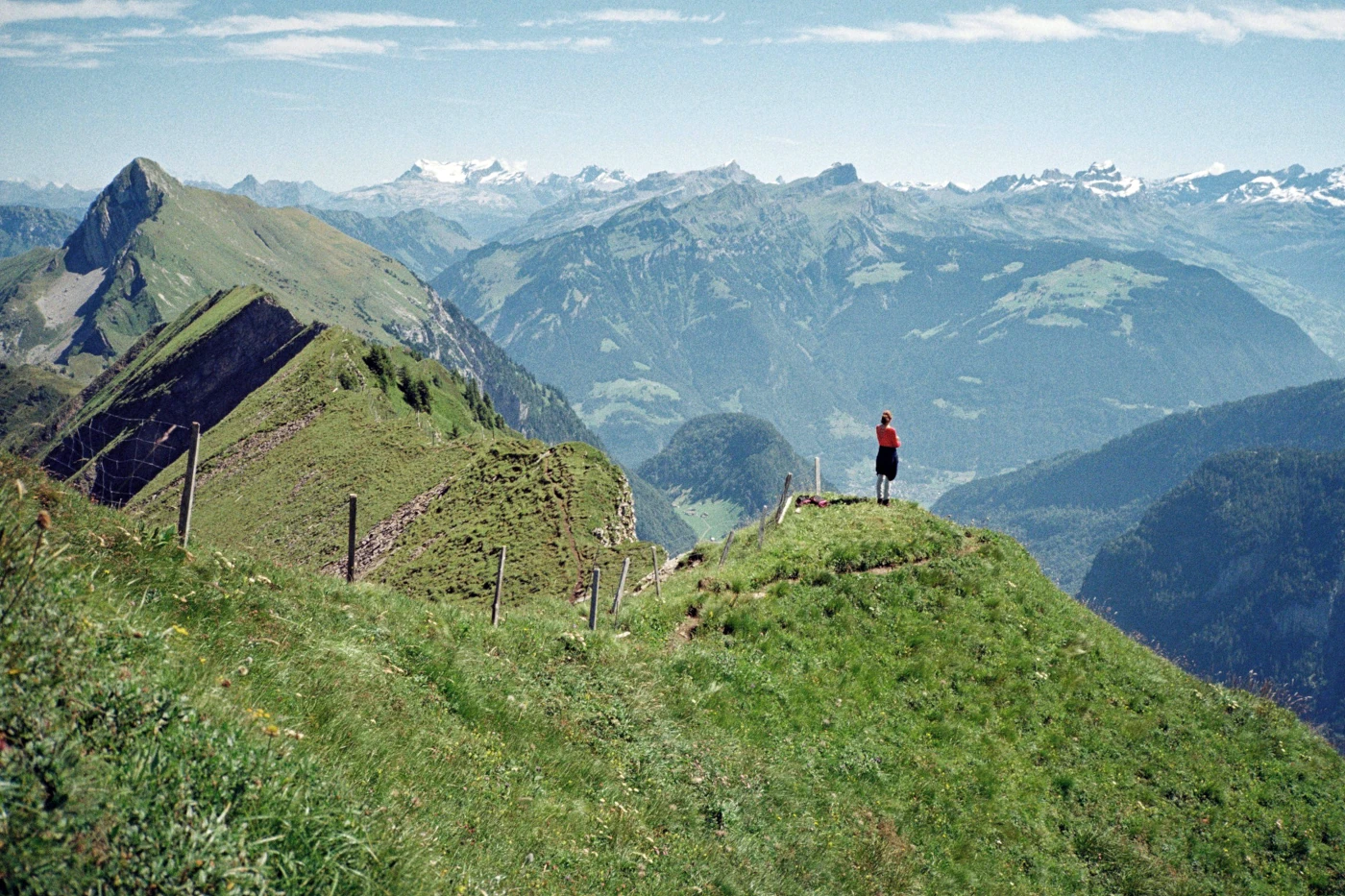
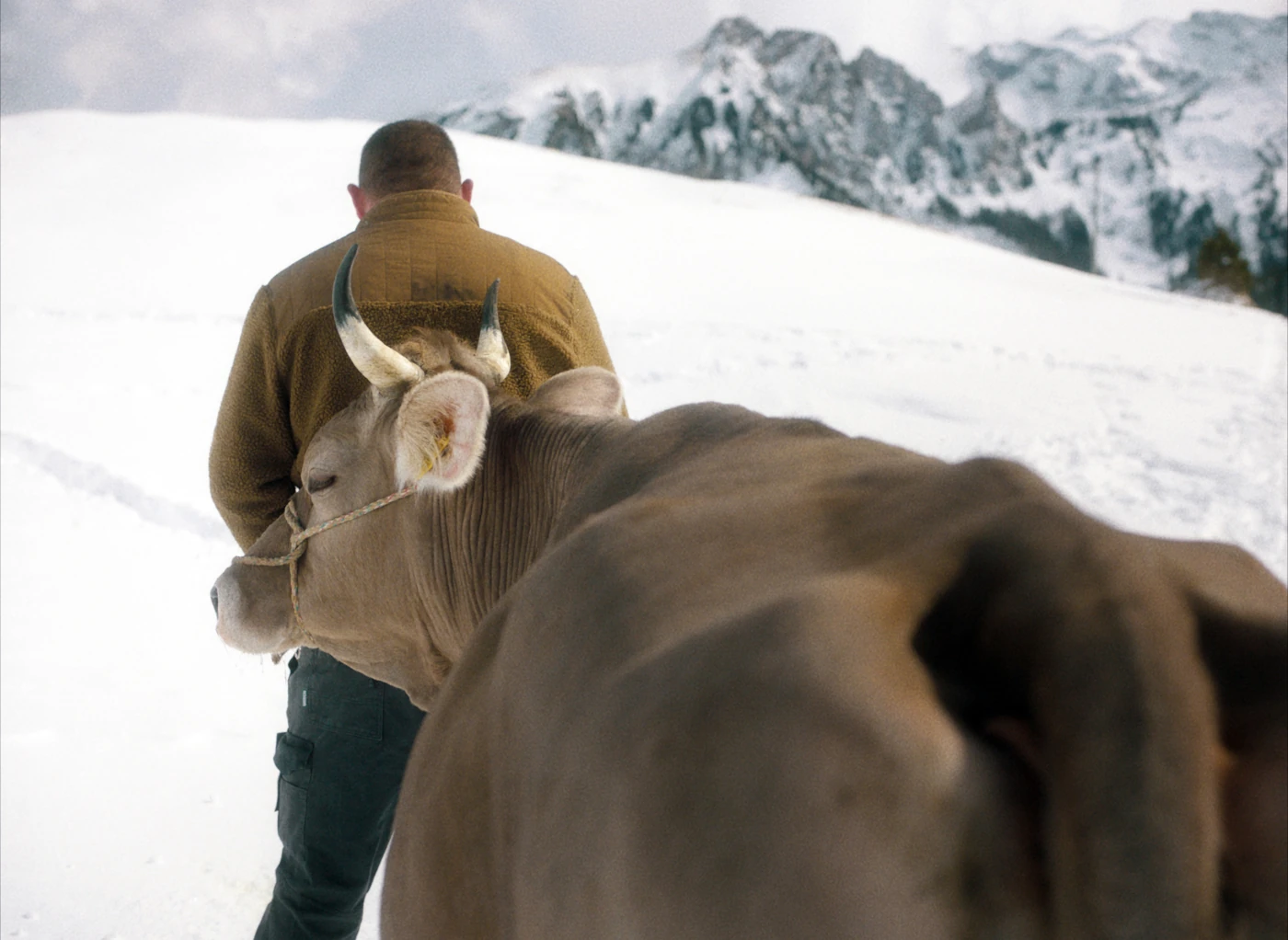
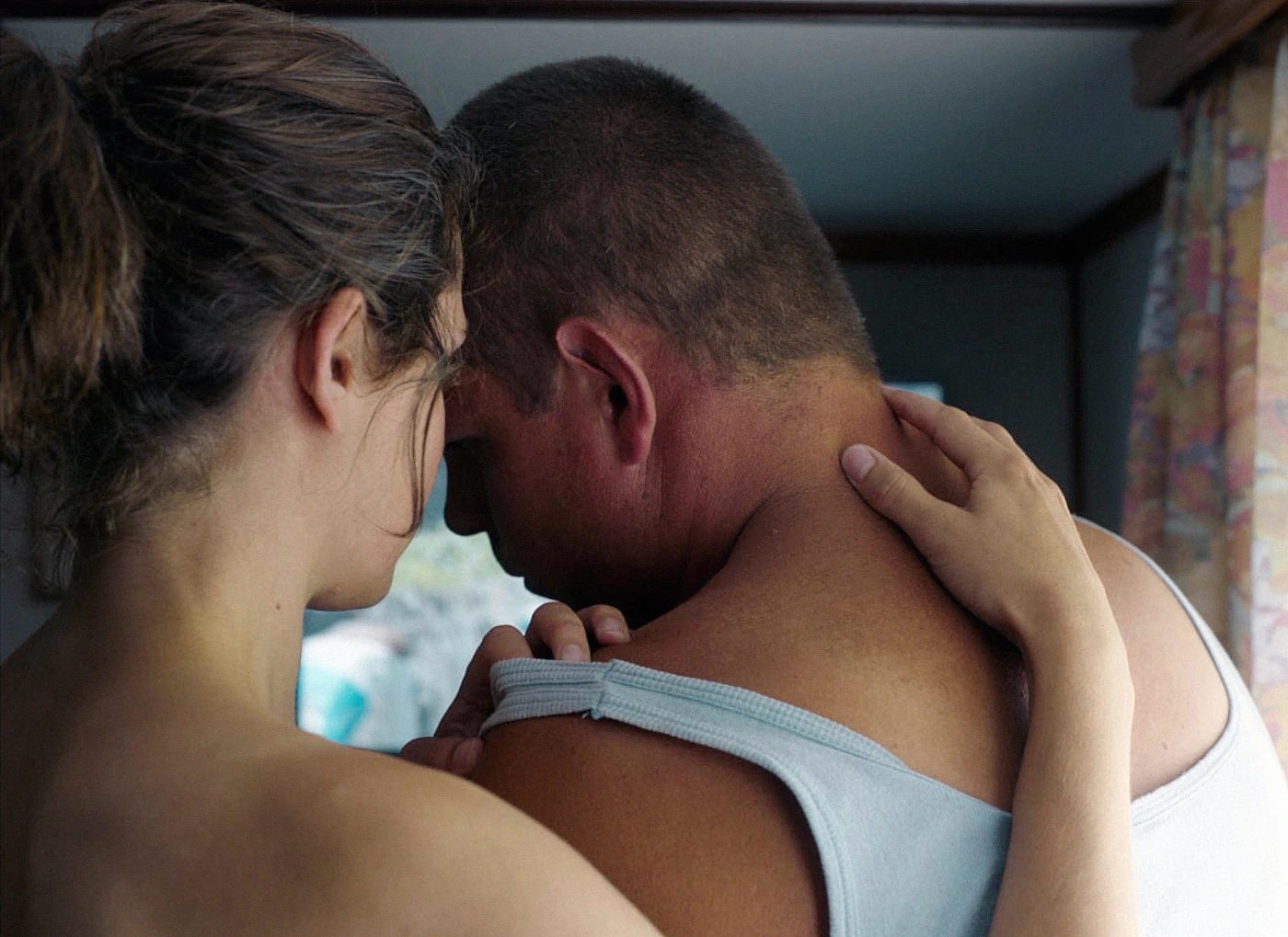
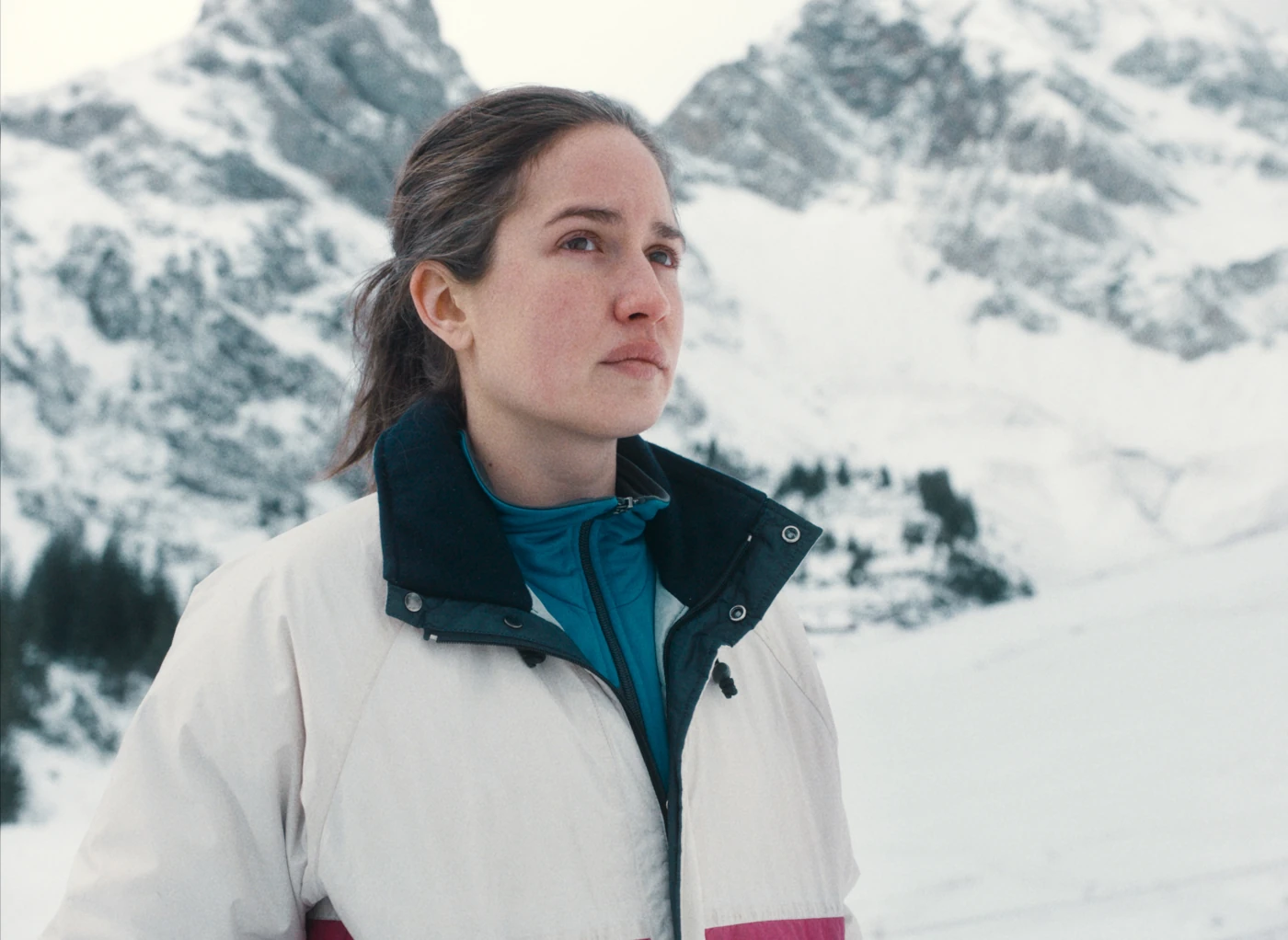




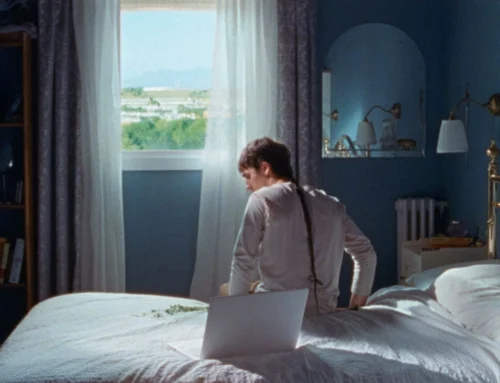
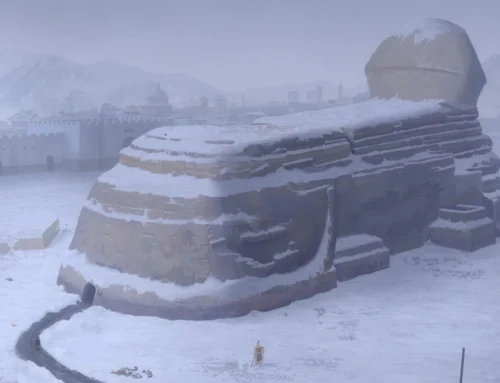
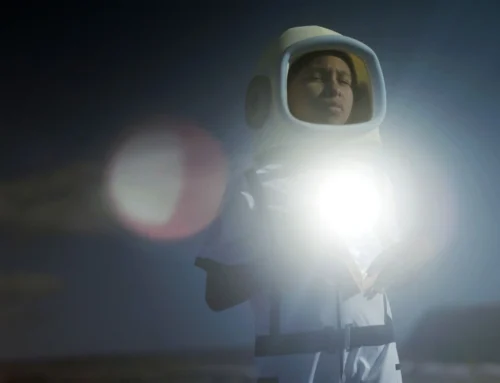
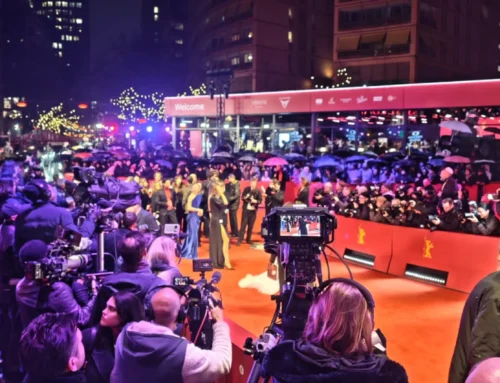
Hinterlasse einen Kommentar